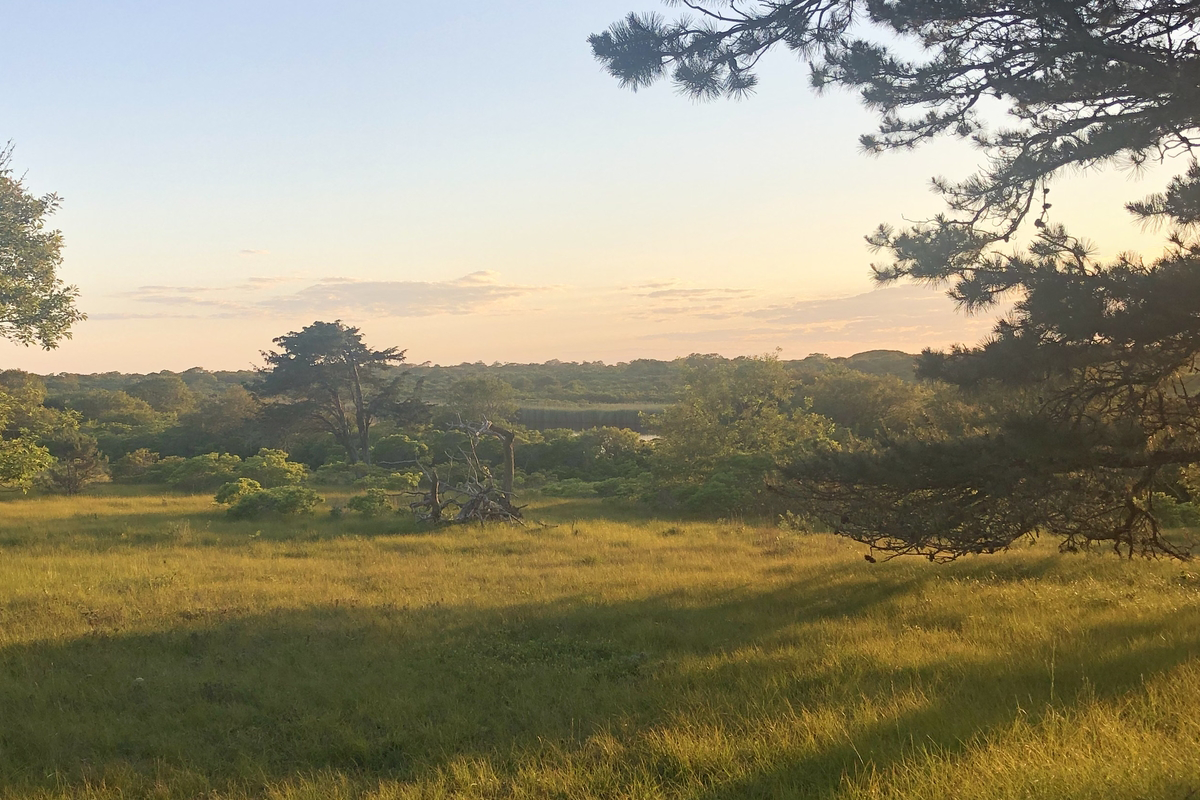I have been lucky enough to spend nearly my whole life on Nantucket Island, where about half of our land is permanently conserved.
When I was little, starting when I was five years old, my mom would drive my brother, my dad, and I into the middle of the woods, dropping us off with our hands pressed tight to our eyes. Imitating our favorite programs, Survivorman and Man vs. Wild, my brother and I braved the "wilderness" and navigated our way back to the open road.
However, sometime in middle school, I fell out of touch with nature. My days were spent almost entirely inside, hopping from books to homework to my phone. I’ve always been a nerd and with high school looming, bearing with it AP classes and thoughts of college, it was easier to just devote myself to learning. I decided to leave the forest exploration for later in life, when I got...less busy, as if that would ever happen.
It wasn’t until the start of quarantine, around four years later, that my schedule suddenly freed up again. With shortened school days, little work, and an inability to see my friends at all, I began walking to fill my time. My walks started short but rapidly grew in length. Soon enough I was leaving at 10am and not returning until dinner time.
In my exploration, I came across a system of trails stretching through the woods less than a mile from my house. This is really where my connection to Mass Audubon began. The trail system weaves through Lost Farm Wildlife Sanctuary, one of two conserved properties managed by Mass Audubon on Nantucket. Lost Farm consists of 70 acres of pitch pine forest and sandplain grassland meadows, with access to Hummock Pond.
As I fell in love with the grounds and the calm lapping waters of Hummock Pond, I was also getting to know the director of Mass Audubon's Nantucket Sanctuaries. I met Sam Kefferstan in a youth climate advocacy group, which works to raise public awareness about the climate crisis and promote change at the local high school.
Despite being a mostly indoors person, I have always been passionate about protecting the climate. It seems like common sense to me to want to keep our home from burning up—or flooding, as would be the case with my home in particular. Nantucket is particularly threatened by climate change and sea level rise as it experiences significant erosion annually and the entirety of the downtown is a flood zone.
In spring of 2021, with Mass Audubon's Youth Climate Leadership Program and school winding down for summer break, I became aware of Nantucket Sanctuaries' Youth Environmental Stewardship (YES) program—a paid internship for students to work with Mass Audubon maintaining its on-island sanctuaries and learning under the director.
I jumped at the chance, and soon found myself working on Lost Farm, the preserve I had already spent so many hours on getting reacquainted with the outdoors and escaping the perpetual stress that accompanied the pandemic.
I couldn’t help but feel like this job was too good to be true; I was walking the same trails I spent hours on for fun, and I was being paid to do it.
Working for Mass Audubon, I had the opportunity to observe shorebirds, learn about native and invasive flora and fauna, as well as visit Muskeget Island to assist in monitoring trips. I especially enjoyed my visits to Muskeget Island, a short trip, yet nearly impossible to reach without an experienced captain.
This summer’s internship has truly been a dream come true for me. It has given me a new perspective on the fight to protect the planet, a cause I care deeply about. With a few exceptions, this was a job in the field. I saw piping plover chicks skittering in the wash, walked the trails for hours utilizing a map-making software, and monitored pond-sites for signs of a harmful algal bloom.
My protection of the environment left the theoretical, and I realized that an essential part of my relationship with nature is a hands-on connection to the natural world.
This internship was my final step towards reconnecting with nature, and I hope to return in the summers to come.
Stay Connected
Don't miss a beat on all the ways you can get outdoors, celebrate nature, and get involved.



